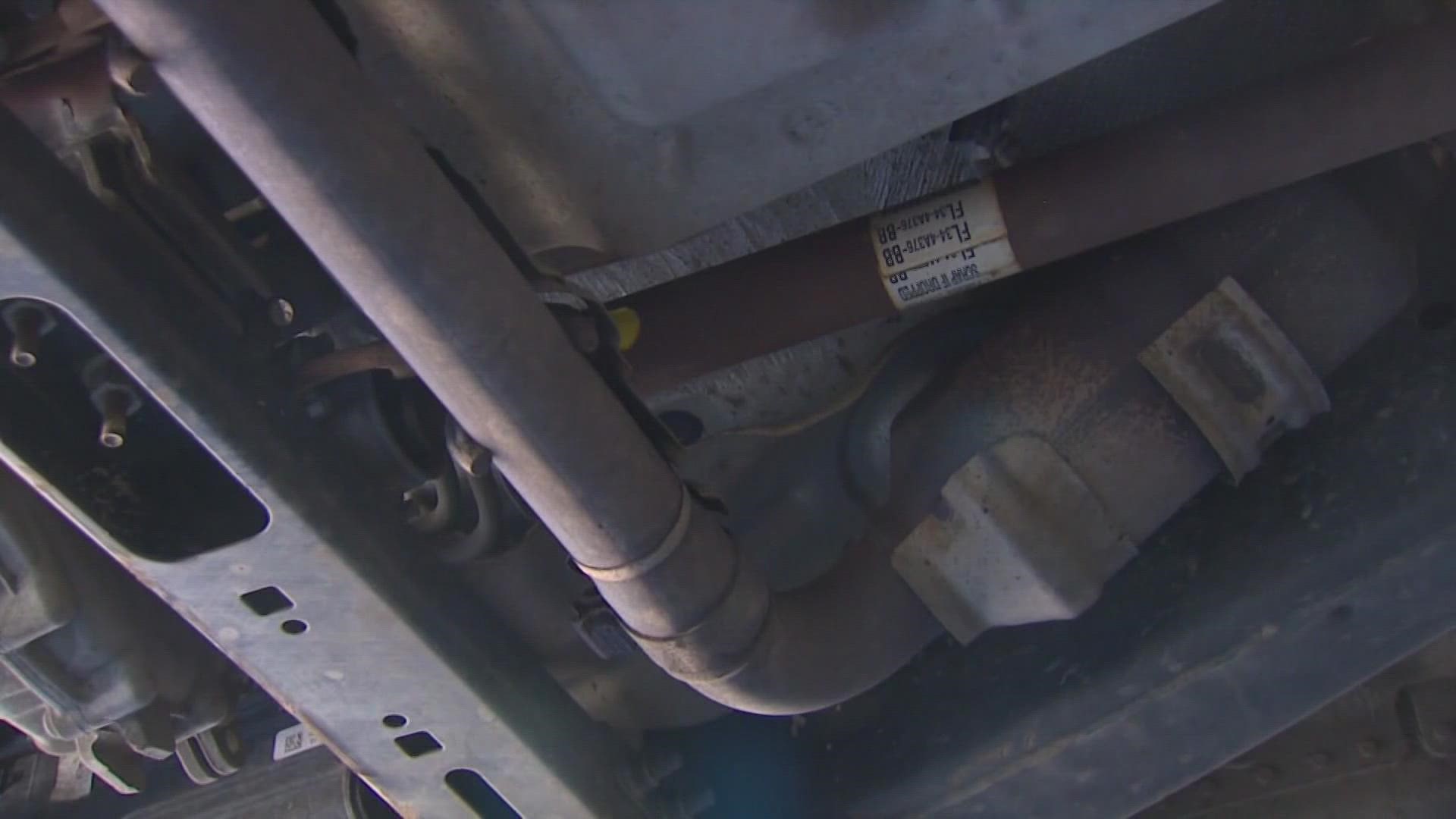OLYMPIA, Wash. — The growing number of catalytic converter thefts in Washington state has caught the attention of lawmakers.
Sen. Jeff Wilson, R-Longview, filed a bill that targets catalytic converter thefts. The bill, which will be considered during the 2022 legislative session, would prohibit scrap dealers from purchasing catalytic converters except from commercial enterprises and vehicle owners.
If approved, it would also require scrap dealers to confirm ownership when the converters are resold and maintain records of vehicle identification numbers. Cash payments could not be made on the spot and must be delayed by at least five days.
Wilson said the legislation is modeled after a similar law taking effect in Oregon in January.
“Catalytic converter theft has become the crime of the day,” Wilson said. “We see reports on every police blotter in every corner of the state. And the crime has exploded in just the last year.”
Catalytic converters are an expensive part, attached to the undercarriage of most vehicles. They contain several precious earth metals that can sell for thousands by the ounce. Thieves around the country and around the world have caught on, stealing catalytic converters and selling them for scrap.
Washington state is no exception. In March, the state's insurance commissioner issued a warning of rising converter thefts.
In June, Washington State Patrol Sgt. Darren Wright said the thefts have become “rampant” in the state. That same month, nearly 800 catalytic converters were recovered by Kent police.
After a quadruple increase in thefts over six months, Everett police started a new project to prevent and track converter thefts.
“We live in an age in which some say we should look the other way at petty crime, because thieves are needy.” Wilson said. “But let me tell you, it’s not going to seem petty when you start your car and you hear a blast from the tailpipe. Replacing a catalytic converter is expensive, and even when it is covered by insurance, sometimes it can take weeks to get a replacement. This isn’t a nuisance crime. It’s an epidemic.”

